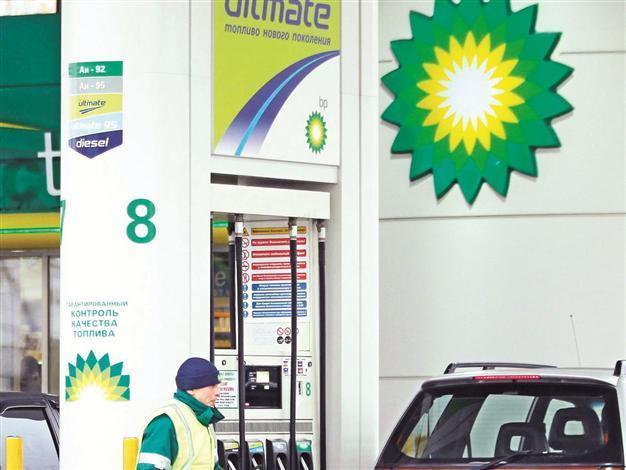BP to reward investors, revisit Arctic post Rosneft
LONDON - Agence France-Presse

A view of a BP petrol station, Moscow, Russia yesterday. BP has agreed to the sale of its 50 percent stake in joint venture TNK-BP to Russian Rosneft. EPA photo
British energy giant BP was set to return money to shareholders and could relaunch plans to unearth Arctic oil following a huge strategic deal agreed on Oct. 21 with Russian state firm Rosneft, analysts said.BP, seeking to reposition itself after the Gulf of Mexico oil spill disaster in 2010, agreed to sell its half of Russian venture TNK-BP to Rosneft for $17.1 billion (13.1 billion euros) plus a 12.84-percent share of the state company.
BP added it would spend $4.8 billion of the proceeds to buy another 5.66 percent of Rosneft from the Moscow government, bringing its total stake in the Russian company to 19.75 percent. BP currently owns 1.25 percent of Rosneft.
“We see potential for a special dividend” after Oct. 21 announcements, said Stuart Joyner, analyst at Investec financial group.
“The deal will be viewed positively as it halves exposure to Russia whilst upgrading BP’s partnership and reviving hopes of an Arctic entry,” he added
BP’s head of Russia David Peattie told Dow Jones Newswires that the group was mulling a share buyback with part of the proceeds, in order to offset the dilution of the group’s value.
Shares in BP ended the day down 1.54 percent at 443.4 pence on London’s benchmark FTSE 100 index of top companies, which fell 0.22 percent to 5,882.91 points.
Tensions over TNK-BP reached breaking point over BP’s efforts early in 2011 to strike a separate Arctic oil tie-up with Rosneft.
That Arctic deal was blocked by the BP’s Russian partners in TNK-BP in a shock move which only worsened their relations with both Rosneft and BP still further.
BP’s chairman Carl-Henric Svanberg said on Oct. 21 that his company’s near one-fifth stake in Rosneft would “deliver both cash and long term value for BP and its shareholders.” He added: “It provides us with a sustainable stake in Russia’s energy future and is consistent with our group strategy.” For the past two years, BP has set about selling what it sees as non-core assets to help fund massive compensation costs resulting from the Gulf of Mexico disaster.
Earlier this month, BP agreed to sell its ill-fated Texas City refinery and a portion of its US retail and logistics network to US-based Marathon Petroleum Corporation for $2.5 billion.
The Texas City facility suffered a deadly explosion in 2005 that killed 15 workers and sparked safety concerns across BP’s U.S. operations.
















